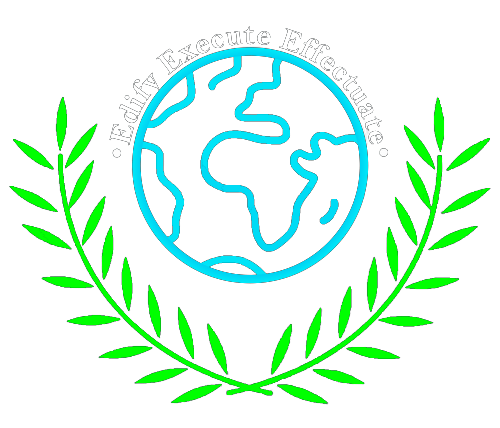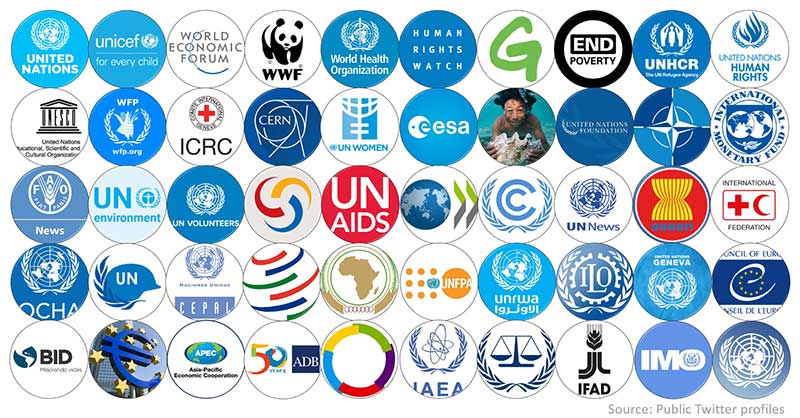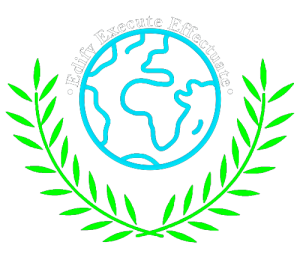Humanity suffers the most in conflicts, today one fourth of humanity lives in conflict zones with the vulnerable most severely affected (War’s Greatest Cost Is Its Human Toll, 2022). International organisations, particularly the United Nations, have the most important task of maintaining international peace and security. The UN is an intergovernmental organisation where sovereign states gather together to discuss issues of global concern and to find shared solutions.
International organisations play an important role as neutral parties to negotiate between the involved conflicting parties. It also pressurises States to sign on various treaties to resolve their conflicts (Jain, n.d.). Treaties and conventions are a widely accepted framework of International Law following which conflicts can be prevented before escalating into humanitarian catastrophe.
Maintaining peace in this world is a challenging task. International organisations work tirelessly to mediate a conflict through diplomacy and negotiation for resolving conflicts. Mediation is a tool for settling a dispute by peaceful means with active participation of third parties in the negotiating process. Most international organisations act as a neutral third party.
One treaty which has remained one of the most successful even after war and tensions between the parties is the Indus Waters Treaty, 1960. The treaty was signed between India and Pakistan after years of negotiations brokered by the World Bank (Fact Sheet: The Indus Waters Treaty 1960 and the Role of the World Bank, 2018). International organisations facilitate mediation as neutral parties to settle complicated disputes which the involved parties are unable to solve on their own.
In the game of power politics which has been played at the international arena that induces conflicts and wars and also led to suffering of innocent civilian population. The UN in these conflict zones send peacekeeping forces to provide basic services and humanitarian assistance to these vulnerable people. UN peacekeepers are the real heroes who are deployed at the ground level. Peacekeeping forces are deployed today alongside with the ongoing conflict, it is no longer a post-conflict measure. They mitigate the effects of the conflict and maintain peace and security around the globe. Peacekeeping Missions are authorised by the UN Security Council which has turned out to be the most effective tool of the UN to assist countries to lay the course from conflict to peace (UN Peacekeeping, n.d.). International Organizations are taking every possible measure from preventing the conflict to resolving the conflict and even in the process of rebuilding the affected zones.
The UN Security Council has been involved in establishing two ad hoc criminal tribunals to prosecute criminals who have committed crimes such as genocide, crimes against humanity and war crimes. They are established to prosecute war criminals who were responsible for violation of International Humanitarian Law, also known as “the law of war” or the “the law of armed conflict” (What Is International Humanitarian Law? | International Committee of the Red Cross, n.d.).
The International Criminal Tribunal for the Former Yugoslavia (ICTY), established in 1993, was the first war crimes tribunal since the Nuremberg and Tokyo tribunals. In 1994, the International Criminal Tribunal for Rwanda was constituted and for the first time prosecuted persons responsible for committing genocide. These Tribunals bring justice to the victims to some extent and deter committing similar atrocities in the future (The ICTR in Brief | United Nations International Criminal Tribunal for Rwanda, n.d.). Despite these purposeful efforts wars are being fought in every nook and corner of this world.
Recently the role of the UN in striving to resolve the war in Gaza has been globally recognized. On October 7, 2023 the armed group Hamas invaded Israeli territory from Gaza in retaliation to which the Israeli forces waged full-fledged war against them in Gaza. Since then Gaza has been facing an unprecedented humanitarian catastrophe. The UN has called for an immediate ceasefire multiple times. Nevertheless, the humanitarian crisis in Gaza continues. International Organizations can work only if member states are willing to devote themselves for the greater cause. But as Realists suggest, states are driven by their national interest. Still, International Organizations have worked vigorously for conflict management.
The UN General Assembly represents 193 states beside two non-member observer states, the State of Palestine and Vatican City. In May 2024, The General Assembly backed Palestine’s bid for UN membership though it was vetoed by the US in the Security Council in April 2024. Furthermore UNGA recommended the Security Council to reconsider the matter favourably. This resolution provides a seat to the State of Palestine in the Assembly but not the voting rights in the General body (Nichols et al., 2024).
The international community has been pushing the Security Council to act on this matter promptly. The UN Security Council has finally adopted a resolution (2735) for a permanent ceasefire in June 2024 backed by the US to put an end to the Gaza conflict. In some ways fitting to the broad categories of conflict resolution accepted by the international community: peacemaking, peacekeeping and peace building (Takang, 2012, pg.2). The resolution is divided into three phases, at the initial phase some hostages will be exchanged between both the parties. The second phase includes a permanent ceasefire and the third phase would involve return of remaining hostages and the start of the rehabilitation process in the devastated Gaza Strip for peace-building. (“UN Security Council Endorses US-sponsored Gaza Ceasefire Resolution,” 2024). There is new hope for the ceasefire deal as both Israel and Hamas have responded positively.
Judicial organ of the UN, the International Court of Justice where the Court settles the dispute in accordance with international law submitted to it by states. South Africa has filed an Application on December 10 2023, instituting proceedings against Israel. Alleging serious violation of its obligations under Genocide Convention, 1948, in relation to Palestinians in the Gaza. Within a month ICJ produced its Provisional Measures and ordered unhindered and urgently needed basic services and humanitarian assistance to the Palestinians. It has modified the measures following the deteriorating situation in Gaza and intensified bombardment in Rafah (International Court of Justice, 2024).. Till now more than 10 countries have submitted a Declaration of Intervention to the ICJ against Israel regarding the Genocide case. Each organ of the UN is working at its best to put an end to this war.
States continue to trust International Organizations because it provides an architecture to deliberate on issues and simultaneously take measures to resolve conflicts that continue to pose threat to humanity. Likewise, the Principle of non-intervention in internal affairs of sovereign states is widely accepted in International Law. Nevertheless, the UN possesses the authority to act under Chapter VII of the UN Charter to take enforcement measures “to maintain or restore international peace and security”. The UN has intervened using military force in matters of global concern. The UN Security Council under Chapter VII of UN Charter passed resolution 678 (Nov 1990), acting in terms of collective security and to authorise legitimate use of force to liberate Kuwait from Iraqi invasion (Delbruck, 1992).
The UN is the leading international organisation for resolving disputes through peaceful means of settlement. Many times these resolutions cannot be effectively implemented due to vested interests of states. The UN Security Council is an exclusive club controlled by Permanent Five members who are largely driven like any other state by their national interests. We can’t deny that international organisations can work only if member states are ready to keep aside their national interests to some extent. Also there is a need for UN reforms that matches the predicament we are facing in the 21st century. Still international organisations are at work to provide best possible solutions for conflict resolution with their limited resources.


